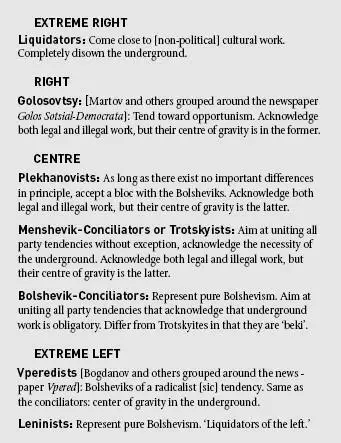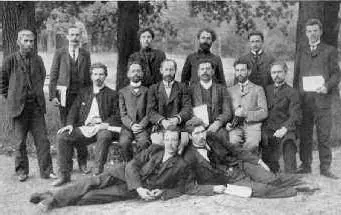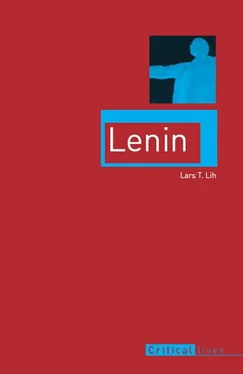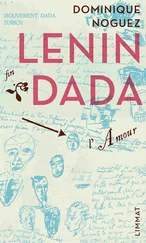Lars Lih - Lenin
Здесь есть возможность читать онлайн «Lars Lih - Lenin» весь текст электронной книги совершенно бесплатно (целиком полную версию без сокращений). В некоторых случаях можно слушать аудио, скачать через торрент в формате fb2 и присутствует краткое содержание. Город: London, Год выпуска: 2012, ISBN: 2012, Издательство: Reaktion Books, Жанр: Биографии и Мемуары, История, на английском языке. Описание произведения, (предисловие) а так же отзывы посетителей доступны на портале библиотеки ЛибКат.
- Название:Lenin
- Автор:
- Издательство:Reaktion Books
- Жанр:
- Год:2012
- Город:London
- ISBN:9781780230030
- Рейтинг книги:3 / 5. Голосов: 1
-
Избранное:Добавить в избранное
- Отзывы:
-
Ваша оценка:
- 60
- 1
- 2
- 3
- 4
- 5
Lenin: краткое содержание, описание и аннотация
Предлагаем к чтению аннотацию, описание, краткое содержание или предисловие (зависит от того, что написал сам автор книги «Lenin»). Если вы не нашли необходимую информацию о книге — напишите в комментариях, мы постараемся отыскать её.
Lenin — читать онлайн бесплатно полную книгу (весь текст) целиком
Ниже представлен текст книги, разбитый по страницам. Система сохранения места последней прочитанной страницы, позволяет с удобством читать онлайн бесплатно книгу «Lenin», без необходимости каждый раз заново искать на чём Вы остановились. Поставьте закладку, и сможете в любой момент перейти на страницу, на которой закончили чтение.
Интервал:
Закладка:
Given his ambitious ends (full political freedom) and ambitious means (peasant revolution), Lenin furiously rejected any ‘philistine’ pessimism. He was especially outraged at Menshevik scepticism about the utility of the uprising of December 1905, given its bloody suppression, as encapsulated by a famous comment by Plekhanov: ‘the workers should not have taken up arms’. Lenin’s reaction: ‘What an ocean of renegade comment was called forth by that assessment!’ The proper response from non-philistine Social Democrats must instead be
to proclaim openly, for all to hear, for the sake of the wavering and feeble in spirit, to shame those who are turning renegade and deserting socialism, that the workers’ party sees in the direct revolutionary struggle of the masses, in the October and December struggles of 1905, the greatest movements of the proletariat since the [Paris] Commune [of 1871]. 25
Looking ahead, Social Democrats must retain their confidence that
the very first fresh breeze of freedom, the slightest relaxation of repression, will again inevitably call into being hundreds and thousands of organizations, unions, groups, circles and undertakings of a revolutionary-democratic nature. And this will as inevitably result in another ‘whirlwind’, in a repetition of the October-December struggle, but on an immeasurably greater scale. 26
The imperative of spreading the good news of socialism and revolution had always been at the heart of Lenin’s scenario. The eagerly awaited repetition of 1905 gave this imperative even more urgency. Most of Lenin’s factional infighting during the years 1908–12 revolved around this issue. As opposed to the right wing of Social Democracy, he fought against attempts to ‘liquidate’ the konspiratsiia underground. As opposed to the left wing, he fought against the rejection of newly available channels of dissemination, in particular the ‘Duma word’, the forum provided by the elected legislature to Social Democratic deputies. 27
Lenin acknowledged that the Social Democratic underground was at present in a state of ‘deep collapse’, yet he remained fiercely loyal to it as an institution. In a tone of puzzlement, the American historian Leopold Haimson wonders why the Bolsheviks attached such importance during these years to ‘issuing pamphlets with their signature and stamp’ and to convening ‘almost illusory’ provisional and regional conferences of underground organizations. ‘The reports of the Department of Police paint a pitiful picture of these meetings, usually attended by only a handful of haphazardly elected and self-appointed delegates, including agents of the Okhrana [tsarist political police].’ 28

Lenin’s attachment to the konspiratsiia underground becomes understandable when we remember the role it plays in his heroic scenario. The konspiratsiia underground was the one place in Russia where the Social Democratic message could be proclaimed boldly and uncompromisingly, the one place where the banner of socialism and the democratic republic could be proudly unfurled. This could not happen in any organization that was legally permitted in Stolypin’s Russia. Furthermore, the miracle of 1905 showed that, even under tsarism, an underground party could be built that was ‘really capable of leading classes . In the spring of 1905 our party was a league of underground groups; in the autumn it became the party of millions of the proletariat. Do you think, my dear sirs, this came all of a sudden, or was the result prepared and secured by years and years of slow, obstinate, inconspicuous, noiseless work?’ 29
Lenin’s vision of the konspiratsiia underground and its threads strategy remained essentially the same as before 1905. As he described it in 1908, ‘this illegal core will spread its feelers, its influence, incomparably wider than before’. But since the intelligentsia as a whole was losing interest in socialism and revolution, the ‘revolutionaries by trade’ who kept the underground up and running had to be recruited predominantly from ‘advanced members from among the workers themselves’. 30Despite all the problems faced by the underground, Lenin was confident that the pamphlets issued by the Bolsheviks were a seed that ‘ has been sown … And this seed will bear its fruits – perhaps not tomorrow or the day after but a little later; we cannot alter the objective conditions in which a new crisis is growing – but it will bear fruit.’ 31
Lenin’s emotional intensity about the need to get the word out also revealed itself in attacks on those of his fellow Bolsheviks who (as it seemed to him) neglected the value of ‘the Duma word’. His feelings are evident in a verbal video of Lenin in his underwear found in the memoirs of Georgy Solomon, a long-time Bolshevik who later occupied a high position as a Soviet trade representative. In 1923 Solomon grew so disgusted with the mores of the Soviet government that he stayed abroad. The following scene is taken from memoirs published in Paris around 1930.
In 1908 Solomon lived in Brussels and hosted Lenin when he visited the Belgian capital. On this occasion Lenin was in town to give a talk on the current situation. The speech did not go over very well, in Solomon’s opinion. Lenin vainly tried ‘to inspire those who gloomily doubted by insisting that the revolutionary movement had not died away but was proceeding forward at its own pace’. 32After the speech they retired to Solomon’s apartment and talked politics. It was after midnight, and both men had got ready for bed. Solomon was already in bed while Lenin, in his usual style, paced up and down making his points – this time in his underwear. The conversation moved on to the problems of the Social Demo cratic deputies. Solomon was a ‘recallist’, that is, he wanted to force the Social Democratic delegation of the Duma to resign. Recallism did not arise from an anti-parliamentary bias – on the contrary, the heart of the Bolshevik revolutionary program at this time was to bring a ‘bourgeois democratic’ parliament to Russia. Nor did the recallists refuse in principle to participate in such a pitiful excuse for a parliament as the current Duma. Solomon and other recallists simply felt that the mediocrities now fumbling around in the Duma chamber in the name of Social Democracy were not ‘tribunes of the people’ but simply an embarrassment.
Lenin got angrier and angrier at Solomon’s stand. Supporting the Social Democratic deputies wasn’t softness on the part of the current party leadership, Lenin exclaimed, ‘but simply a desire to preserve our parliamentary group, as is advantageous to a party that stands at the head of the proletariat and expresses its revolutionary interests. And anybody whose brain isn’t completely clouded over should realize this.’ Solomon retorted (in a calm and business-like fashion, he tells us) that the current incumbents were so incompetent that they even threatened to damage the prestige of the Russian Social Democrats in the eyes of European socialists. Lenin exploded:

Oh, that’s it! That means, we should recall them. A very clever solution that does great honour to the profundity and political wisdom of those who thought it up! Let me tell you, my very good and most excellent sir, that ‘recallism’ is not a mistake – it’s a crime! Everything in Russia is now asleep, everything has died away in some sort of Oblomov-style dream. Stolypin stifles everything, the atmosphere of reaction becomes more and more all-embracing. And now, in the words of M. K. Tsebrikova (I hope you know the name, my very esteemed sir), I remind you that ‘when the dour wave of reaction is about to sweep over and swallow everything that still lives, then all those who represent a progressive outlook are called upon to cry out to those who are losing spirit: Stand firm!’ This duty should be clear to anyone with half a brain. 33
Читать дальшеИнтервал:
Закладка:
Похожие книги на «Lenin»
Представляем Вашему вниманию похожие книги на «Lenin» списком для выбора. Мы отобрали схожую по названию и смыслу литературу в надежде предоставить читателям больше вариантов отыскать новые, интересные, ещё непрочитанные произведения.
Обсуждение, отзывы о книге «Lenin» и просто собственные мнения читателей. Оставьте ваши комментарии, напишите, что Вы думаете о произведении, его смысле или главных героях. Укажите что конкретно понравилось, а что нет, и почему Вы так считаете.












